The Biden Effect: Total Quits API, and Keystone XL Pipeline Is Off Again
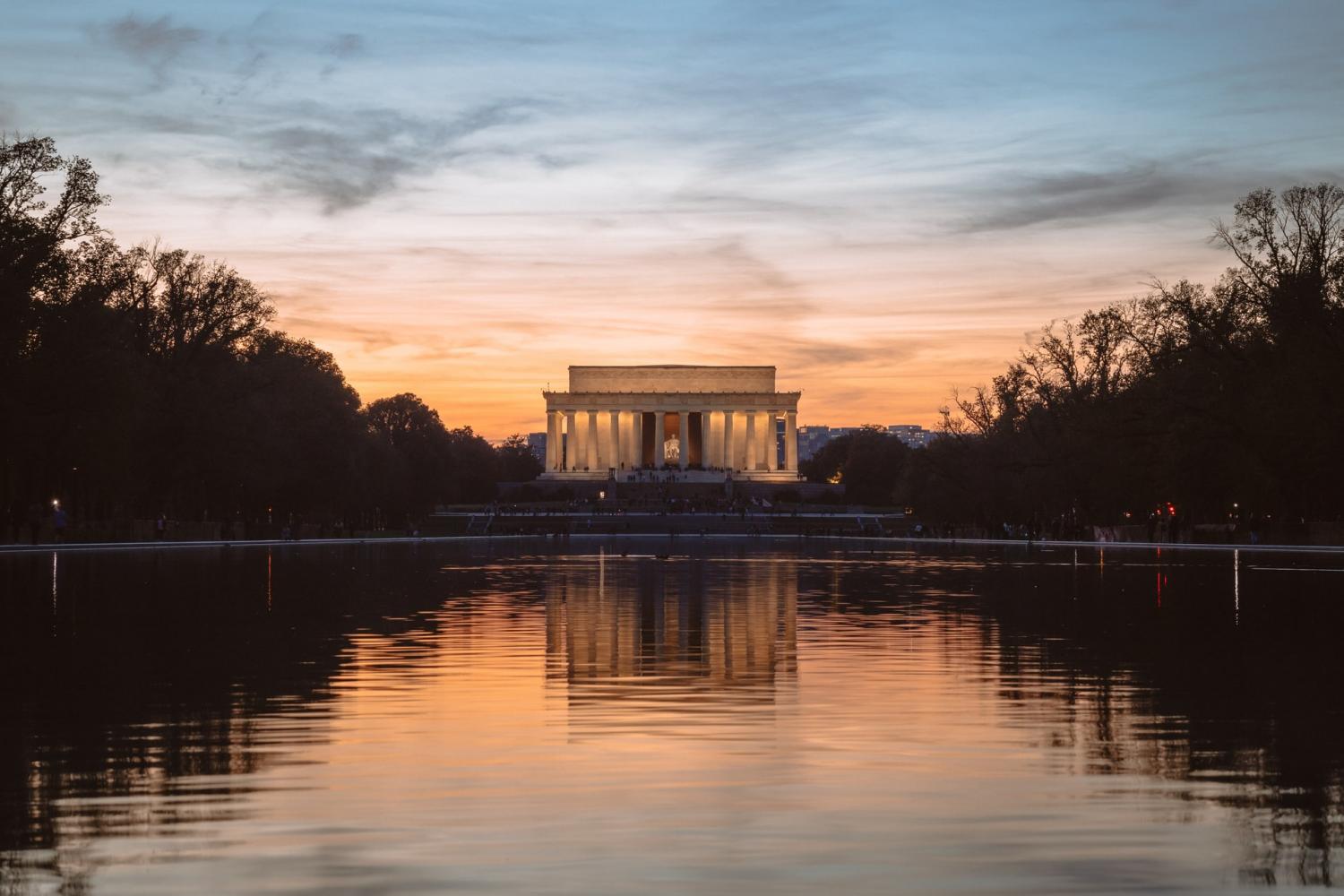
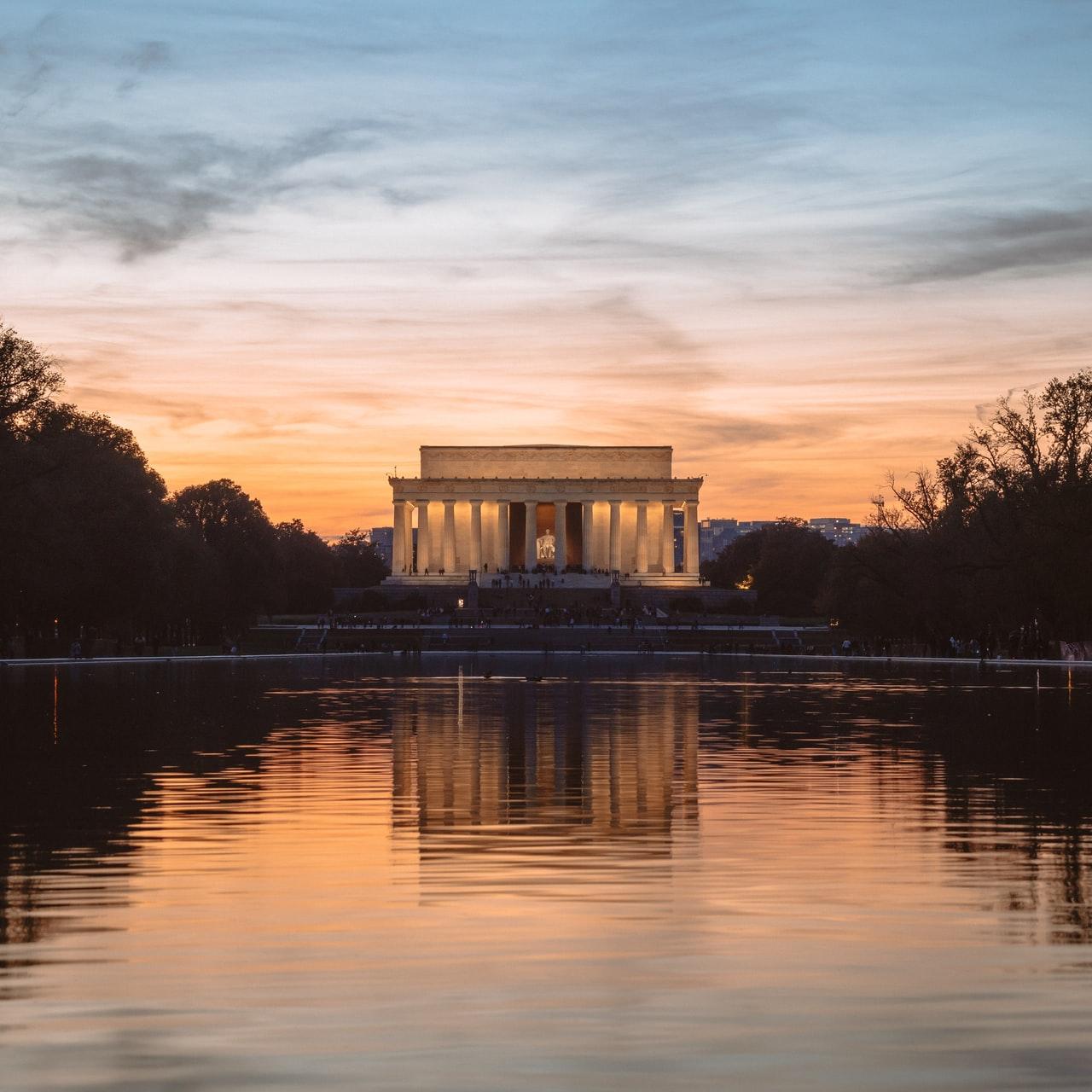
President-elect Joe Biden campaigned on a plan to take decisive action on climate change, and some of the heavy lifting has already happened even before Inauguration Day. On Jan. 15, the France-based global energy company Total announced that it has withdrawn from the lobbying organization American Petroleum Institute (API), making it the third such company to leave in recent months. In addition, Biden plans to pick up the Keystone XL oil pipeline project where the Barack Obama administration left it — in the reject pile.
Total pivots to renewable energy
To be clear, Total still maintains an active interest in developing new fossil fuel resources. For example, on Jan. 14 the company announced a significant new oil and gas discovery off the coast of Surinam. Nevertheless, Total also represents the ability of global legacy firms to invest in a more sustainable business model — if they choose.
There certainly is a lot to choose from. Over the years, renewable energy startups have amassed considerable resources and know-how, making them ripe targets for acquisition and joint ventures with companies like Total.
Total has already amassed a strong renewable energy portfolio, and it poured on the heat in the days leading up to Inauguration Day. On Jan. 19, the company announced a $3.6 billion bond program to finance its renewable energy strategy, which will lean heavily on acquisitions. That includes acquiring a 20 percent interest in India-based Adani Green Energy, which plans to develop 25 gigawatts in wind and solar power over the next five years.
Three days later, Total joined with the firm Engie to develop a 100-megawatt green hydrogen project in support of Total’s La Mède biorefinery in France. The project will deploy solar power to generate hydrogen from water and will be the largest of its kind in France.
Total also made a big move in the U.S., and this is perhaps the one most relevant to its decision to withdraw from the API. On Jan. 14, Total joined with the Hanwha affiliate 174 Power Global in a development deal involving 10 utility-scale solar installations and two energy storage projects, which are already in the 174 Power Global pipeline. Together the 12 projects add up to 1.6 gigawatts in clean power capacity.
Interestingly, Total announced the deal out of its Houston office, deep in the heart of Texas oil and gas country. The Lone Star State will also be the location of five out of the 10 solar projects involving Total, which is also of interest. Despite its status as a top oil and gas producer, Texas has also become known for its leadership in the U.S. wind industry. More recently, the state has become a target for solar power developers, too. The other five solar projects are spread among Nevada, Oregon, Wyoming and Virginia, and the two storage projects will go to Nevada and Hawaii.
Total withdraws from API
Somewhat ironically, in 2019 the API moved into new, energy-efficient platinum LEED-certified headquarters at Capitol Crossing in Washington, D.C.
That didn’t seem to impress Total. On Jan. 15, the company announced that it will not renew its API membership for 2021. Total based its position on a review of key points, including support for climate science and the Paris Agreement, as well as carbon pricing, carbon capture, and policies that promote renewable energy.
The review found that API is in partial alignment with Total on some of these points, but the company cited a clear split in the area of subsidies for electric vehicles, which API opposes.
Total highlighted another deep fissure regarding the Donald Trump administration’s rollback of methane emission rules for drilling operations, which API supported. Total says it is still committed to promoting natural gas as a transitional energy source, but it opposed the rollback due to the climate impact of the new policy.
The bottom-line impact of the rollback also became apparent last fall when Total’s home country of France rejected a $7 billion liquified natural gas deal, partly due to concerns over methane emissions from U.S. gas operations. A plan to import U.S. gas into Ireland through the Port of Cork also hit a brick wall earlier this week based on the country’s opposition to fracking.
The Biden effect and the Keystone XL Pipeline
In addition to citing particular parameters outlined in its September 2020 Getting to Net Zero report, Total noted that API supported a number of candidates who opposed the Paris Agreement on climate change.
The company did not cite President Trump by name, but its meaning was clear: “As part of our Climate Ambition made public in May 2020, we are committed to ensuring, in a transparent manner, that the industry associations of which we are a member adopt positions and messages that are aligned with those of the Group in the fight against climate change,” said Total Group Chairman and CEO Patrick Pouyanné.
API has already lost the support of two other leading energy-transitioning companies, BP and Shell. When President Biden takes office, the climate action focus of the new administration may soon motivate others to shift their lobbying resources in support of renewable energy.
As one sign that the Biden administration is serious about taking bold, attention-grabbing steps on climate action, earlier this week word leaked out that President Biden plans to sign an executive order revoking the permit for the notorious Keystone XL oil pipeline on his first day in office, in addition to restoring the U.S. to the Paris Agreement.
As a cross-border project bringing tar sands oil from Canada into the U.S., Keystone XL requires a State Department permit. The permit was denied in 2015, when Biden served as vice president during the Obama administration, partly on the basis of climate action. The Keystone XL project was later revived by the Trump administration in 2017.
Biden has already won high marks among environmental advocates for his climate action and environmental justice plan. By revoking the Keystone XL permit and rejoining the Paris Agreement, Biden has also made it clear that energy companies seeking to do business in the U.S. will need to join the global decarbonization movement.
As for API, the failed Jan. 6 insurrection incited by President Trump appears to have motivated the organization to reconsider its support for legislators opposed to climate action.
Last week, Reuters reported that API member Chevron is among a growing number of U.S. firms that are reviewing or have outright halted donations to the 147 Republican members of Congress who objected to the Electoral College vote on Jan. 6. Other API members are also taking that step, in a move that may factor into API’s own decisions as well.
Image credit: Andy Feliciotti/Unsplash
Facebook Tries to Leap Into the Next Era of Civil Rights


In the wake of Martin Luther King Jr. Day, and as a new presidential administration takes shape, Facebook has hired Roy Austin to become its first VP of Civil Rights. Austin has worked as a civil rights lawyer for over 25 years, and he has also served on the White House Domestic Policy Council as Deputy Assistant to the President for the Office of Urban Affairs, Justice and Opportunity during the Obama administration.
Facebook talks meaningful change after a boycott and a walkout?
The new position comes after last summer’s ad boycott “Stop Hate for Profit” campaign engaged more than 1,000 companies — including Adidas, Coca-Cola, Unilever and Starbucks — to pause advertising on the platform through July to urge Facebook to build a permanent civil rights infrastructure.
Stop Hate for Profit was spurred by Facebook’s lack of response to the incendiary language President Trump had posted on social media during the George Floyd protests in the spring, some of which included racially charged phrases such as “when the looting starts, the shooting starts.” In an unprecedented move, Twitter flagged that post. Facebook heads decided to take no action on the cross-posted comments, citing the importance of free expression. As companies paused their ads, Facebook employees walked out.
The new VP position doesn’t respond directly to the requests of the Stop Hate for Profit boycott, which recommended creating a specifically C-suite level position. In fact, the coalition claims that during a July 7 meeting with Mark Zuckerberg, the Facebook founder and CEO “made clear he had no intention of taking any steps to tackle our requests.”
What the VP position will bring is someone to oversee civil rights accountability and best practices, according to Facebook’s two-year independent civil rights audit. The audit, which concluded in July, just as Facebook was coming under fire for its lack of civil rights action, notes the position as part of the progress the company made during its two years of observation. Also included were the creation of a Civil Rights Task Force led by COO Sheryl Sandberg, establishing civil rights training for employees and agreeing to add additional civil rights experts to its team.
Despite the progress, auditors are wary of celebrating too heartily. “Given the breadth and depth of Facebook’s reach and its impact on people’s lives, Facebook’s platform, policies, and products can have significant civil rights implications and real-world consequences. It is critical that Facebook establish a structure that is equal to the task," wrote the audit’s authors.
Facebook advertising on precarious footing
Facebook’s approach to civil rights could also affect its own business performance. Data from marketing research company Forrester Research, which it disclosed this month to Retail Dive, found that most companies that paused advertising on Facebook during the boycott did not see adverse effects on their bottom line.
"The fact that they did okay, and there was literally no negative impact, they did no worse than their worst timeframes, to me suggests that the incremental lift [i.e., from Facebook ads] is very, very limited," Sucharita Kodali, vice president and principal analyst at Forrester, told the news site Retail Dive, also noting that before the boycott, very few companies had been bold enough to stop advertising on social media. This data, therefore, affords unique insight into Facebook’s effectiveness.
With insight like this cutting at the root of Facebook’s value proposition, company executives may not feel as inclined to scoff at the requests of boycotters. The data from Forrester should signal to the social media giant the need to set Austin up for success. Otherwise, advertisers may have fewer reservations about pausing or cancelling advertising altogether the next time a civil rights infraction occurs without appropriate response.
One VP alone can’t shift Facebook’s approach to civil rights
Facebook’s civil rights audit includes steps the business must take to make real progress and avoid continuing to facilitate dangerous dialogue. Much of this guidance includes continuing to build the necessary infrastructure and staff to support a highly capable VP of civil rights.
The first two recommendations for the company’s accountability structure are continuing to onboard civil rights expertise for existing teams and building out the civil rights VP’s team up front so that Austin can act with vision and proactivity instead of getting bogged down by more frivolous tasks at the outset.
As Austin enters Facebook, the company may be demonstrating some growth. A day after the harrowing storming of Congress, spurred by Trump, and as employee activists called for a permanent ban of Trump from the platform, Zuckerberg reported that the president’s suspension would not be lifted at least until after he left office.
Perhaps Austin can keep this momentum going. “I am excited to join Facebook at this moment when there is a national and global awakening happening around civil rights,” he said in a statement. “… I could not pass up the opportunity to join a company whose products are used by so many and which impacts the civil rights and liberties of billions of people, in order to help steer a better way forward.”
Image credit: Joshua Hoehne/Unsplash
Why the ‘Infodemic’ Opens Doors of Opportunities for Business
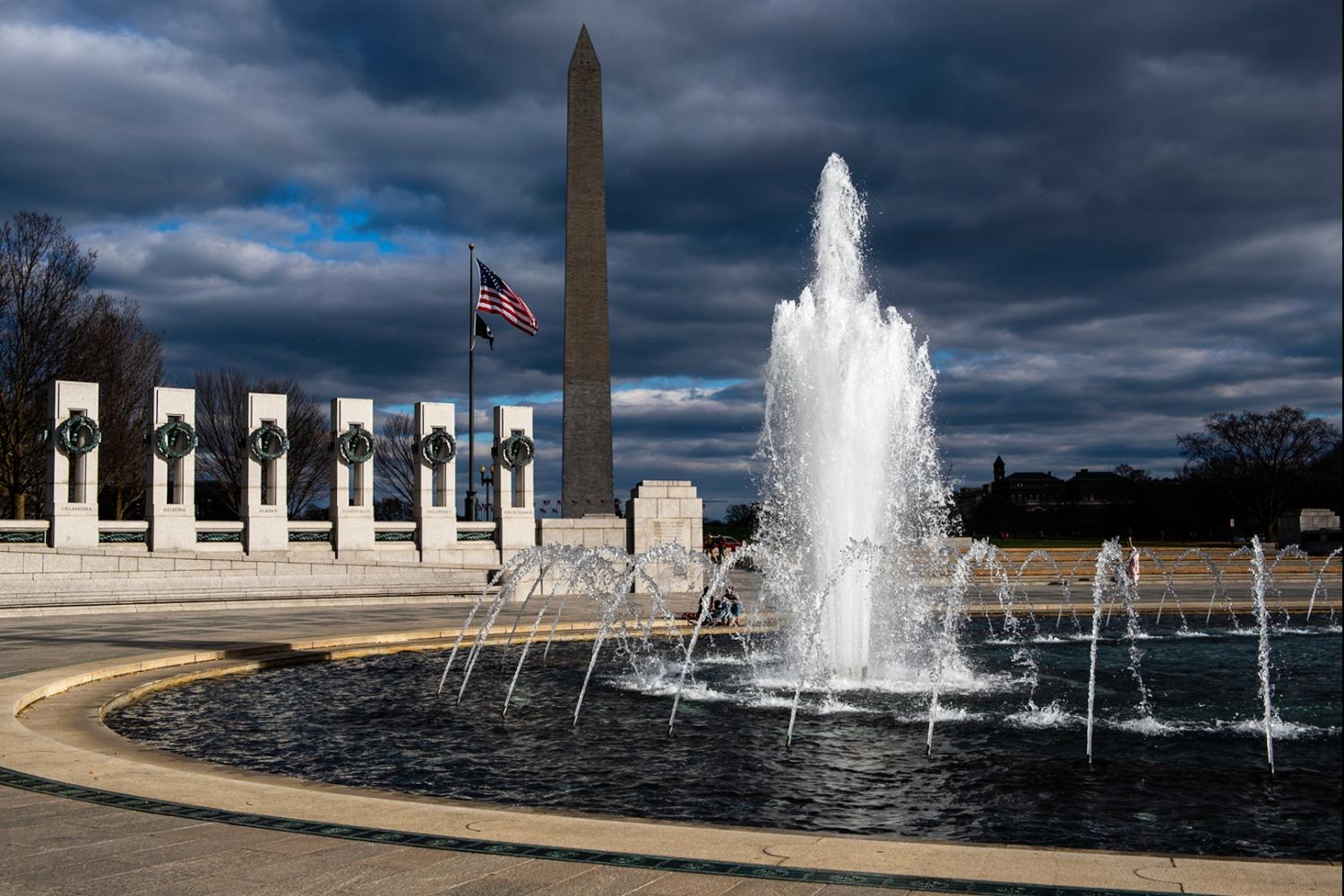
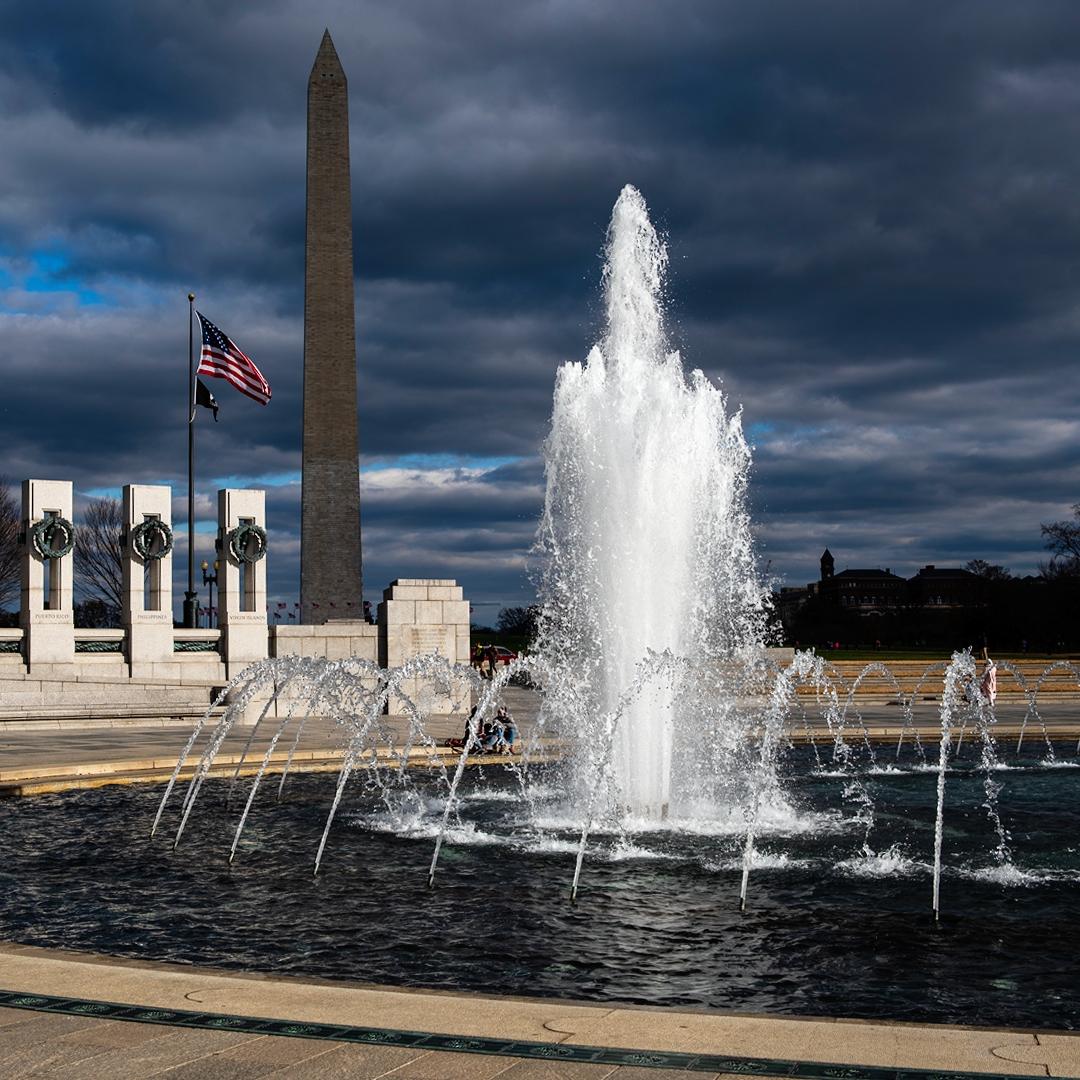
As a new administration confronts massive challenges, endless questions and plenty of doubts about the republic’s future, one thing is clear: The years-long misinformation campaigns amplified by cable news networks and social media — which some have called the "infodemic" — helped plunge the U.S. into multiple crises at once.
That’s the main takeaway from the annual Trust Barometer report from the public relations firm Edelman, and the findings this year just aren’t pretty.
For those of you who have coped with the uncle or cousin at the holiday table who kept saying, “Well, I heard on Facebook...” about anything ranging from Antifa to Mike Pence to Mark Zuckerberg, you’ll appreciate Edelman’s findings as much as you’ll be discouraged by them.
First, the bad news: Almost 60 percent of the more than 30,000 people Edelman surveyed said government officials, business leaders, and journalists are intentionally misleading people by saying and posting information they know is false. “This is the era of information bankruptcy,” Richard Edelman, the firm’s CEO, said in a statement.
The survey also found that less than 1 in 4 of those surveyed practice what’s known as “information hygiene,” which in Edelman’s definition includes taking actions such as fact-checking information or avoiding the din of social media noise.
The consequences are stark: Well over half of those who lagged in vetting information were less willing to get the COVID-19 vaccine. Almost the same amount believe the pandemic is a ploy to replace human workers with robots or artificial intelligence.
The good news is: Due to this infodemic crisis, doors are opening wider for the business community. Just over 60 percent of those surveyed by Edelman said business is the most trusted institution, well outpacing government. Further, more than 75 percent indicated they trust their employers, and almost two-thirds place trust in their companies’ CEOs.
As encouraging as the results may be for companies, the challenge they face is to not fumble this opportunity. Companies would be wise to prioritize transparency over jargon, encourage open conversations about where an organization succeeds and where it’s falling short, and not be afraid of taking a stand on some of the most polarizing issues of today.
On that last point, speaking out and taking action on challenges many of us find triggering can be difficult. After all, communications professionals and public relations firms generally still advise their corporate clients to take a more cautious approach when addressing social and economic issues, if they even broach them at all.
But last summer’s calls for social justice, in addition to the violence in D.C. only two weeks ago, have shown that there is no nuanced or “both sides” formula to address these problems. The sword cuts both ways: If more of us are trusting companies, it also means we expect them to not only say what they believe, but actually follow through on doing the right thing during this fraught time. Then, perhaps, we can emerge from the depths of this infodemic.
Image credit: Preston Low
This Brand Is Out to Tackle Hunger and Racial Disparities in U.S. Agriculture


Long before the novel coronavirus pandemic, the U.S. was dealing with a pandemic of systemic racism, as TriplePundit has long reported. By expanding the market for Black farmers, the Hellmann’s Food Relief Fund, launched by the Unilever condiment brand sharing the same name, aims to tackle aspects of both pandemics: the COVID-related hunger crisis and the systemic bias against Black Americans working in agriculture.
A hunger crisis that won't go away
The growing hunger crisis in the U.S. (reflecting a global hunger crisis) has been depressingly prominent in the headlines since the pandemic began last March — and it shows no signs of abating. More Americans went hungry in November (nearly 26 million, or 1 in 8 U.S. residents) than at any point during the pandemic, the Washington Post reported. As a result, food banks have seen a 70 percent increase in demand since the pandemic began.
Meanwhile, American farmers have been forced to waste millions of pounds of fresh produce due to affected restaurant and food service supply chains, including farmers across Idaho and Montana forced to give away or destroy millions of potatoes. Farmers are desperately trying to find markets for their products — and that is especially true for Black farmers, who have long experienced economic disadvantages and disproportionate access to markets.
Hellmann’s saw a way to address this web of problems in U.S. agriculture with its Food Relief Fund, committing over $1.5 million to help those most in need in New York City, the brand’s birthplace. As part of that initiative, the brand is partnering with community-based organizations and the Federation of Southern Cooperatives to direct funding to the purchase of 200,000 pounds of food from Black farmers to support their businesses.
Hellmann’s is tackling multiple systemic problems within U.S. agriculture
Overall, Hellmann’s set a goal to rescue more than 1.2 million pounds of food from farms that would otherwise go to waste, and feed more than 230,000 people in need by the end of 2020. In New York alone, an estimated 1.5 million people are now facing food insecurity, and as such Hellmann's program will continue into 2021.
“The goal of the Hellmann’s Food Relief Fund is to not only end food waste, but also tackle food injustice and food system inequities and its disproportionate impact on the Black community,” Ben Crook, senior marketing director for Hellmann’s North America, told TriplePundit.
The Federation of Southern Cooperatives is sourcing excess food from Black farmers and sending it to the East Side House Settlement (ESH), which then distributes the food to New York families in need. Each week, ESH distributes boxes of produce and pantry items for community centers in the South Bronx, as well as to partner pantries and families enrolled in ESH’s public school-based sites. “Currently, we’re helping feed over 5,000 people in need each week,” Daniel Diaz, executive director of the East Side House Settlement, told 3p.
Black farmers hard hit by COVID-19 get a helping hand
“Through the Hellmann’s Food Relief Fund, our member farmers not only gain access to a larger market, but also have the opportunity to receive fair retail pricing for their produce,” added Chawnn Redden, regional marketing coordinator for the Federation of Southern Cooperatives. “This translates to increased revenues that help sustain Black-owned farms, providing resources for necessary infrastructure and even helping save their lands.”
Black landowners have experienced a 90 percent land loss since 1910, and currently Black Americans own just 1 percent of rural land nationwide, Redden said. Further, Black farmers make up only 1.3 percent of all Americans working within agriculture.
Many Black farmers have also been especially hit hard by the pandemic, Redden adds. “In our early COVID-19 assessments, 84 percent of Black farmers reported a decrease in their markets as a result of the pandemic, leading to increased food waste and financial loss. The challenges faced by Black farmers and cooperatives are rooted in well-documented instances of discrimination, inequity and heir’s property issues that lead to land loss.”
Those involved with Hellmann's program are far from the only ones looking at this issue. The newly announced Justice for Black Farmers Act would transfer up to 32 million acres to Black farmers over the next decade. Sen. Cory Booker of New Jersey, the lead sponsor of the bill, said it would enable Black farmers to acquire up to 160 acres apiece at no charge through a U.S. Department of Agriculture (USDA) system of land grants. Under the bill, an Equity Commission would also study the legacy of discrimination at the USDA and suggest reforms that could reach the farmer-elected county committees that help guide operations at local USDA offices. An independent board would hear appeals of civil rights complaints decided by USDA officials.
If moved forward, the legislation could help begin to address racial disparities in U.S. agriculture in which both the government and the private sector will have a decisive role to play in the near future.
Image credit: Zachary Sinclair/Unsplash
Look to the U.S. Air Force for Best Practices in Energy Efficiency


Businesses seeking to shrink their carbon footprint can take a cue from the U.S. Air Force. Decarbonizing aircraft fuel will take some time, but meanwhile the Air Force has been deploying energy efficiency as a powerful tool for reducing carbon emissions and saving money, too. The Air Force also stands to reap additional benefits that can apply equally to the commercial sphere, including improved reliability, resiliency and productivity.
Energy efficiency can pay for itself, without paying up front
Energy efficiency has often been called the low-hanging fruit of climate action, and for good reason. According to one study, a full slate of energy-efficiency measures could cut carbon emissions in the U.S. as much as 50 percent by 2050.
An energy-efficiency upgrade can easily pay for itself over time by cutting utility costs. However, the up-front cost of equipment and installation has prevented many business owners from making the investment. Similarly, up-front costs can be a significant obstacle for upgrading public facilities. That is why the Air Force, and other federal agencies, have begun focusing more attention on a financial arrangement called an ESPC, or an Energy Savings Performance Contract.
The basic premise of an ESPC is fairly straightforward: The upgrade is conducted by an energy services company, and little or no up-front payment is required from the client. Instead, the client pays for the upgrade in increments over time.
An ESPC can also include a long-term maintenance and repair contract, as well as provisions for training and updating employees. That’s an important consideration where new technology and staff turnover are involved.
If all goes according to plan, the client still saves money compared to past utility costs, even after deducting the payments to the energy services provider.
Energy efficiency and COVID-19
The ESPC concept is not actually a new idea. However, in past years there was little post-installation data available for assessing such projects’ effectiveness on a broad scale.
More recently, the data has been piling up in favor of ESPCs. In 2017, the Department of Energy published a list of benefits attributed to ESPC projects.
“ESPC projects can yield benefits beyond just energy savings, like avoided operations and maintenance expenditures, increased occupant productivity, health and comfort, and reduced air pollution,” the agency wrote. “Research has shown gains of 6 to 26 percent in ‘occupant performance’ in various groups, such as students learning in schools, employees working in commercial offices, or consumers spending in retail venues.”
With the COVID-19 pandemic still raging full blast, the Department of Energy’s observations on the health benefits of ESPCs are especially interesting. The agency made this point in 2017, three years before the pandemic hit the U.S.:
“Building retrofits that improved the indoor environment of a building have reduced instances of communicable respiratory diseases by 9 to 20 percent and allergies and asthma by 18 to 25 percent, and other health and discomfort by 20 to 50 percent.”
Even after a COVID-19 vaccine becomes widely available, experts warn that the world must increase its guard against communicable diseases moving forward. That provides businesses with yet another reason to invest in energy-efficiency upgrades.
The U.S. Air Force will decarbonize, with biofuels or not
The Air Force provides a useful decarbonization model for businesses that don’t have a clear pathway for switching to carbon-free or carbon-neutral fuel in the near future. This branch of the military has been actively promoting the use of jet biofuel, including numerous contributions to foundational biofuel research. However, its transition to renewable fuels will take years if not decades.
Meanwhile, last October the Air Force launched a new crowd-sourcing initiative aimed at decarbonizing itself and the entire Department of Defense, too. With jet biofuel and other alternatives far off on the horizon, energy efficiency and ESPCs are certain to play leading roles in the near term.
A new $403 million ESPC project for the Air Force’s Yokata Air Base in Japan provides an illustration of the scale and potential for savings involved. The sprawling base includes more than 450 buildings.
The contract covers $167 million in installation costs plus a 21-year service agreement with Schneider Electric. The firm has amassed considerable experience in the ESPC field, and the Yokata project is its fourth ESPC with the Air Force.
The heart of the project is a new 10-megawatt combined heat and power plant with microgrid controls. Along with building automation systems, new lighting systems, plumbing fixture upgrades and other measures, the contract provides for guaranteed energy savings averaging $20 million annually. The Air Force expects to save 30 million gallons of water annually along with the considerable savings in energy and electricity.
Energy efficiency and resilience
The Yokata project also highlights the interplay of resilience and energy efficiency. While the cost and energy savings of the Yokata project are impressive in terms of both climate action and bottom-line benefits, the main motivation behind the upgrade is resiliency. Once completed, the new ESPC will help Yokata Air Base continue operating smoothly despite the grid issues that have troubled the Tokyo area in recent years.
Resiliency is a key issue for national defense, and it is also looming large as an issue for businesses facing the impacts of climate change. In previous years, companies had to rely on fossil-fueled emergency generators for backup power. ESPCs can provide a pathway for building resilience while reducing carbon emissions.
Image credit: Aral Tasher/Unsplash
Putting Consumer Digital Banking at the Heart of Philanthropy


Most of us are not one of the Bill Gates of the world and don’t see ourselves as philanthropists. But that could soon change with the introduction of the new fintech platform Amicus.io, designed to scale donor-advised funds by making philanthropy as easy as online banking.
While philanthropy has been around for a long time, it is a vast, fragmented landscape, with approximately 1.3 million charities in the U.S. Many people would like to make a bigger impact with their hard-earned dollars but don’t know where to start. Amicus.io founders Walt Ruloff and Cor Hoekstra hope to solve that with an integrated platform that connects people with charities to create a “virtuous giving cycle.”
The idea is to tap into the $121 billion currently sitting in donor-advised funds (DAFs). With the Amicus platform, individuals would be able to use their bank accounts to access DAFs for their charitable giving. The company says it is now in the early stages of implementation with a tier-one global bank.
Tapping into the uptick in charitable giving
In a recent interview with TriplePundit, Ruloff and Hoekstra discussed why such a platform is urgently needed and how it can make a difference in charitable giving — not just during a crisis, but consistently. In the wake of crises like the novel coronavirus pandemic, charitable giving tends to rise, studies show. DAFs showed substantial increases in grants to organizations as well as in inflows to the funds themselves during the pandemic. The key is to find a way to keep the donor funds flowing steadily post-crisis.
In 2005, Ruloff, founder and chairman of Amicus.io, started to investigate nonprofit technology. Recognizing immediately that the sector has no underlying technology infrastructure, he started to design a system that would re-engineer the philanthropy value chain starting from the donor through to the nonprofit organization, and finally to the beneficiaries on the ground. Ruloff started Amicus.io Global Relief Solutions, Inc. in 2013 and Amicus.io four years later to bring charitable giving into the consumer banking experience. He was joined by Hoekstra, a 30-year veteran in the supply chain management technology sector who is now CEO of Amicus.io.
Democratizing philanthropy
Ruloff’s story begins after selling a software company he had founded; he wanted to direct some of that money toward charitable giving but found the world of philanthropy complex, with little transparency.
“Quite frankly, if you're a donor, and you give money away and you're not the Gates Foundation or some sophisticated foundation, you don't know how it's spent, you don't know where the money goes, and you don't know ultimately what the effectiveness of your donations have been,” he told 3p.
At the same time, Ruloff noticed two important trends: people’s desire to be more engaged in giving to causes they care about, and “a massive digital transformation that was taking off, transforming corporations, but not the world of philanthropy,” he said. “Fast forward to the advent of the cloud, and we realized we could roll out a solution like Amicus at scale.”
Scaling to millions of donors
The result, Ruloff explained, is to take an entirely fresh approach to philanthropy. “We're approaching it from the idea of acquiring tens of millions of donors at scale with our bank partners, to bring those donors to the charities, and then offer the charities on the cloud. It’s a complete operational tool, allowing the charities to build, post, fund and execute their projects through a pipeline with tracking capabilities.”
Hoekstra added: “Our vision is a form of automated philanthropy, with monthly automated contributions, as easy as online banking. To mobilize donors at scale we want to bring the tools of the 1 percent and the level of sophistication and intentionality to the 99 percent. DAFs are a proven, time-tested tool but they have been only available to high net-worth individuals. It is time to change that—so that everyone can be a philanthropist. We can write checks all day long, but the idea is to be intentional - to be a savvy donor, just like we are savvy investors.”
The platform is ready to go, and Amicus hopes to make an announcement soon about its upcoming bank partnership, Ruloff told us. “We’re excited to be creating a standardized platform that brings charities and donors togethers in a new way," he said. "Our goal is to really change the way philanthropy works.”
Image credit: Daria Nepriakhina/Unsplash
IBM Gets It Right on Cancel Culture and Corporate Responsibility


On the heels of the failed insurrection of Jan. 6, several prominent Republicans have raged that the real danger to American democracy is “cancel culture.” That view is quite understandable. After all, several top U.S. corporations have already canceled their financial support for scores of Republicans in Congress who abetted the insurrection, and the fallout has only just begun. Despite Republicans' complaints, it appears the business community is determined to exercise its right to boycott whomever it pleases, and IBM has just made the case for corporate cancel culture to go even further.
When boycotts work: "Cancel culture" as damage control
The term “cancel culture” has different shades of meaning. Generally, it refers to an outpouring of criticism targeting celebrities and other public figures. During the Donald Trump administration, it has also become a political slur. Leading Republican officials such as former South Carolina Gov. Nikki Haley deployed the term “cancel culture” to neutralize Black Lives Matter supporters and other critics of the outgoing president’s policies on human and civil rights, among other issues.
But using the slur “cancel culture” has now become a damage control strategy for lawmakers facing corporate boycotts due to their connection to the failed insurrection attempt. An ever-growing list of business leaders joined a funding boycott on the 147 Republican members of Congress who objected to the Electoral College vote on Jan. 6. In addition, tech companies are boycotting Trump and some of his supporters by denying them access to their social media or e-commerce platforms.
Under these circumstances, many of those 147 elected officials will find it difficult, if not impossible, to win re-election. Other Republican party members seeking higher office are also at risk. Little wonder that they are leaning on the “cancel culture” slur to regain access to corporate dollars, media support and e-commerce platforms.
Gov. Haley provides one example of how the “cancel culture” slur works as a damage control strategy. She spoke at a closed-door meeting of the Republican National Committee on Jan. 7, just one day after the failed insurrection. As reported by Politico and other news organizations, she criticized the president and called upon members of her party to do some soul-searching.
But another part of Haley’s speech was picked up by a conservative op-ed contributor in The Hill, who reported: “Haley also warned of what might turn out to be a much more corrosive threat to the already unravelling fabric of our republic: the rise of censorship and ‘cancel culture.’”
The op-ed continued:
“They’ve demonstrated that they’ll ‘cancel’ anyone who gets in their way,” Haley said. “They want to shout down and shut up anyone who disagrees with them. They want to take control of the classroom, the boardroom, the media green room and even the dining room table."
In sum, the real danger facing the U.S. is not the violent extremists who attacked the Capitol building with murderous intent. Members of the public who insist on a civil society are the real enemies.
IBM gets corporate social responsibility right
The “cancel culture” slur may sound like a smart strategy inside the Republican bubble, but in a corporate context, it is something entirely different. It is an existential threat to the corporate social responsibility movement. It erases the foundational principle of the movement — namely, that corporations have the power to decide right from wrong.
Christopher A. Padilla, IBM’s vice president of government and regulatory affairs, is among those recognizing the threat that the “cancel culture” slur poses to the corporate voice on matters of moral, social and civic concern.
In an IBM blog post last week, Padilla did not call out the Republican party by name, but he clearly intended his message as an argument for corporations to flex their public muscle far beyond the cancellation of donations to Republicans. “Many of our peers in corporate America have started by suspending their financial contributions to elected officials who objected to the clear and certain outcome of the election,” Padilla wrote. “But this moment in history should be about much more than organizations temporarily withholding political money to take a stand. This is an opportunity for us to pause and think, to look ahead at what policy measures can truly restore trust and confidence in our democracy."
Padilla noted that IBM has a decades-long policy of not making political donations, either directly or through a PAC. From this nonpartisan platform, Padilla pledged that IBM would support Congress and the incoming Joe Biden administration in a series of reforms aimed at limiting the ability of the Republican party, or anyone else, to organize another insurrection.
That includes strengthening the rules for presidential transitions, updating Hatch Act restrictions on partisan politicking by public servants, restricting the installation of partisan allies in federal agencies, and reforming the law on financial disclosure and divestiture for persons holding public office.
Padilla also highlighted two legislative proposals previously supported by IBM, which bear directly on the ability of the Republican-backed mob to organize and break into the U.S. Capitol building with lethal force, reportedly with the involvement of law enforcement officers.
One is the issue of justice in policing, which dominated the public discourse in the months leading up to the 2020 election. IBM is among the corporations supporting the Black Lives Matter movement, and Padilla pledged to step up the company’s efforts to advocate for new racial justice legislation like the George Floyd Justice in Policing Act.
The other reform has bears on the issue of tech company liability for online content. Tech companies are currently shielded under Section 230 of the Communications Decency Act, and Padilla pledged that IBM would support transparency-oriented legislation like the bipartisan PACT Act introduced during the previous session of Congress.
Section 230 reforms cut straight to the heart of the “cancel culture” slur by affirming the responsibility of tech companies to make moral, ethical, and civic judgements about the speech and images they host.
“Cancel culture,” the talent race and brand reputation
If Gov. Haley and her colleagues in the Republican party hope to defuse the corporate boycott movement by leaning on the “cancel culture” slur, they have their work cut out for them.
Even before the insurrection, the Republican party was already at risk of losing the talent race, as the up-and-coming generation turns away from racism and white supremacy. Now reports have surfaced that employers are shying away from hiring former Trump administration officials, adding yet another reason for talented and ambitious young people to avoid associating with the Republican brand.
Lest Republicans complain that the employment issue is another form of “cancel culture,” Forbes chief content officer and editor, Randall Lane, counters that the issue is not political — it is a simple matter of brand reputation. In a Jan. 7 article, Lane warned employers of the reputational risk involved in hiring any of Trump’s top spokespersons, based on their collective track record of lying to the public.
“Forbes will assume that everything your company or firm talks about is a lie,” he wrote, while noting that Forbes is a top brand with a reputation of its own to protect. He placed “cancel culture” firmly in the silo of “societal blight,” meaning that it has no bearing on a company’s right to protect its brand. “This standard needs to apply to liars from either party,” he concluded. “It’s just a realization that, as Daniel Patrick Moynihan famously said, in a thriving democracy, everyone is entitled to their own opinions, but not their own facts.”
Reputational risk and public safety
The reputational risk factor is already emerging in areas aside from corporate donations. Loews Hotels, for example, caused a stir over the weekend when it publicly announced that its Portofino Bay Hotel in Orlando canceled a fundraiser for Missouri Sen. Josh Hawley, who is widely regarded as among the chief instigators of the Jan. 6 insurrection.
“We are horrified and opposed to the events at the Capitol and all who supported and incited the actions," Loews wrote in a Twitter post on Jan. 16. “In light of those events and for the safety of our guests and team members, we have informed the host of the [February] fundraiser that it will no longer be held at Loews Hotels.”
Th public safety issue dovetails with the growing movement among corporations to push back against permissive state laws on carrying weapons in public. It also reinforces the efforts of corporations to push back against the anti-mask movement as a simple matter of civic responsibility.
Business leaders have only just begun to realize that they can steamroll over the “cancel culture” slur. The only question is whether they can act quickly and forcefully enough to help prevent Trump, Republican members of Congress, and their supporters from creating another insurrection from the ashes of the first one.
Image credit: Ian Hutchinson/Unsplash
Corporations Still Behind on Honoring Martin Luther King, Jr.
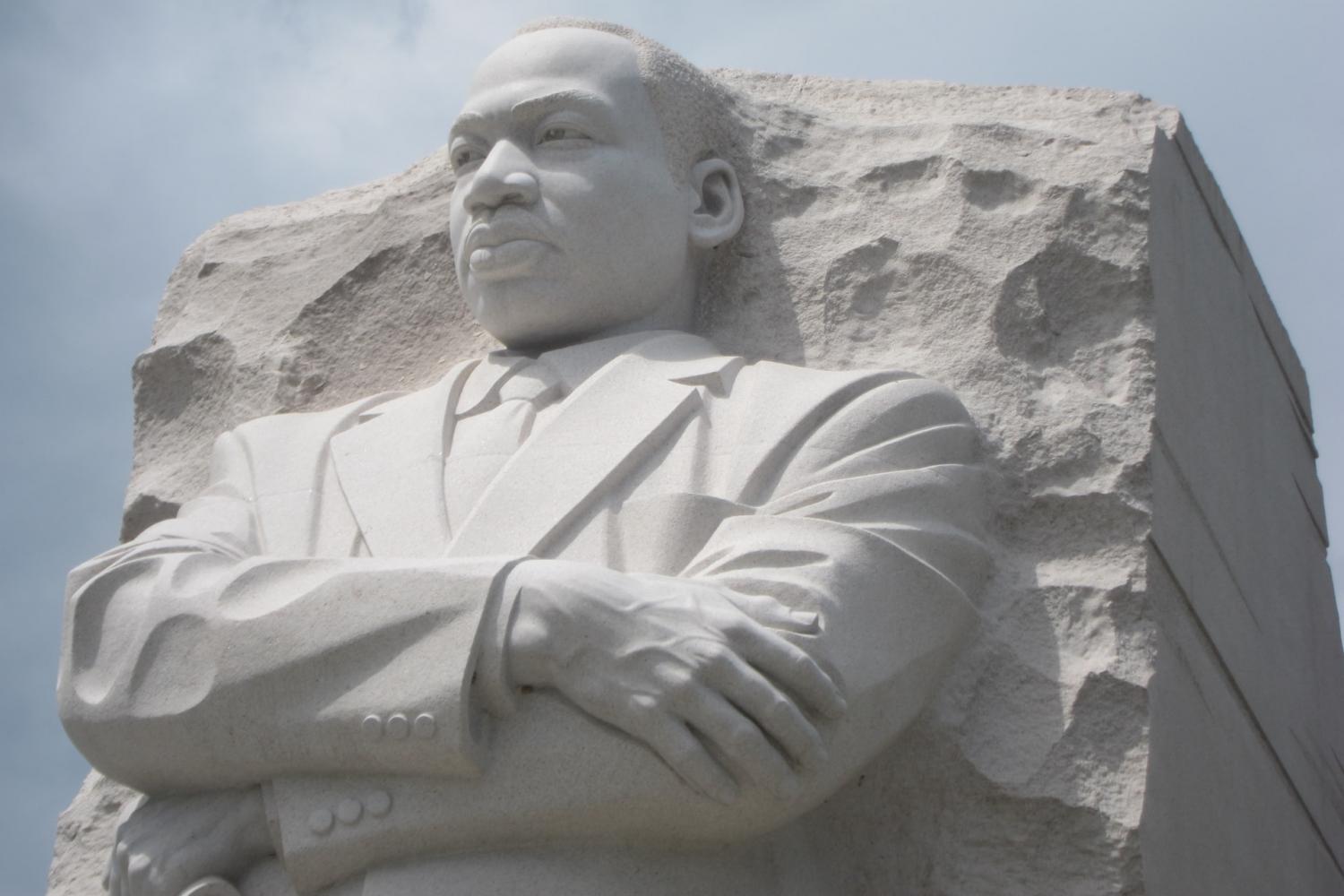

While Martin Luther King, Jr. is most known for his leadership on securing civil rights, he was also passionate in his fight for economic justice. His stance on economic issues was summed up in one of the last speeches before his death, during which he said, “It is criminal to have people working on a full-time basis and a full-time job getting part-time income.”
Over the past year, no shortage of companies have pledged their alignment with economic and racial justice as the Black Lives Matter movement channeled the passion of millions of Americans. The events of the last two weeks, however, illustrated that many of these companies’ deeds fell far short of meeting their words.
How? Start by following the money trail. The Associated Press estimated that companies have donated at least $170 million to politicians who voted to overturn the November presidential election results. Six of the largest U.S. asset managers alone reportedly donated over $100 million to this group of politicians. Those donations are about as far from a ploy to uphold King’s ideals as any company can get.
On one hand, you could defend these companies by saying they didn’t know what would happen on Jan. 6. Then again, it’s not as if these elected officials hid their views on matters of race and economic justice.
It’s no wonder these political donations are widely seen as tacit approval of a fight to overturn an election that was largely decided by people of color voting in huge numbers — only to be told for weeks that their votes were illegitimate and didn’t matter. That’s quite a departure from King’s “Give Us the Ballot” speech from over 60 years ago, when he implored the federal government to secure voting rights for Black Americans.
Corporate public statements in the last 10 days echo last summer — when corporations were practically stepping over each other proclaiming that they, too, stood with Black Americans. But the problem for many of these companies was, again, the money trail. As Will Meyer discussed in an op-ed on Business Insider last August, statements ring hollow when those same companies either help fund, or lend their technology, to a system of law enforcement that too often singles out people of color. “Yet despite these gestures that have gained untold ‘earned’ media for these companies, each one remains deeply invested in punitive systems that continue to harm Black and brown lives,” Meyer wrote.
Many civil rights leaders see criminal justice reform as one way to continue King’s legacy, which included his advocacy to transform a legal system stacked against Black Americans. The reality, however, is that more companies are entwined in the U.S. prison system than those making any effort or even noise to reform it.
Bottom line: Many companies are, time and again, great at talking the talk, but when it comes to the walk, many trip before they’re even out the door. Abetting a system and group of leaders that tried to silence people who voted for a shift in racial and economic justice won’t cut it. Neither will grand promises of ending all political donations — that’s only resuming the “both sides” argument. Last we checked, there aren’t two sides on supporting American democracy or striving to ensure racial equality.
As for the argument that companies need to tread carefully in order to not upset some of their stakeholders, here’s the problem: It’s not that the cat is already out of the bag. In fact, that cat is long gone, and you’ll never catch it.
As Ben & Jerry’s CEO Matthew McCarthy wrote in Ellen McGirt’s latest RaceAhead newsletter: “Activism at a corporate level comes down to a unified walk and talk. Businesses must make transparent their values and take actions to address real social and/or environmental ills. If you're not willing to act, there's no sense in getting involved in the game because the people you serve are too smart, too savvy, and will call B.S.”
Whether the call is to have a more diverse and inclusive workforce, or to support everyone’s right to vote, or to pay a fair wage, the way companies can honor King is to take action now. Vague promises to correct injustice by 2025 just won’t cut it — and as McCarthy says, you’ll be called out on your response if the promises aren’t followed up with deeds.
Image credit: Bee Calder/Unsplash
The WWF Predicts Top Issues, Trends and Tools for 2021


Every year World Wildlife Fund’s Markets Institute identifies and publishes a list of global issues, trends, and tools we think will most affect food and soft commodities in the coming year. We have just released the list for 2021. These emerging developments may not yet be apparent. Thus, this list is intended to create awareness and shift our thinking and actions.
This year the process has been complicated by COVID-19 which could have dominated the list (we predicted the increased likelihood of zoonotic diseases in our 2017 list). The pandemic has disrupted lives, food systems, and much more, and its long-term impacts remain to be seen. We have tried to look beyond the pandemic to lasting changes and influences on our global food system. We are also interested in the extent to which the pandemic experience is a trial run for our responses to climate change.
The Arctic: the next frontier
While the world’s attention has been focused on deforestation in the Amazon, there has been far too little attention on the Artic. Here are a few reasons to be concerned: there are some 42,000 resource extraction and infrastructure projects already in various stages of development (in a region of four million, many Indigenous peoples); wheat, corn, and soy were planted this year on what was recently Russian permafrost; “zombie” bacteria from thawing reindeer corpses caused an anthrax outbreak in Siberia; fisheries are moving north but management systems are not keeping up with them; and marine species are now moving between the Atlantic and the Pacific Oceans. Welcome to climate change.
Eating in
During the pandemic shopping and cooking at home accelerated. It will never return to what it was. The shift has been away from brick-and-mortar stores, established food distribution pathways and even in-restaurant dining. E-commerce for food and food delivery will increase, while face-to-face interaction in both grocery retail and restaurants will be less than before. Remote work and high-speed internet will accentuate these trends which will are not likely to return to pre-COVID levels.
Common metrics
There is still little agreement about what must be measured or how to measure it. We can’t improve global performance on food without common metrics. We see movement for SDG and ESG performance, LCAs, GHG emissions, regenerative agriculture, ‘Build Back Better’ ambitions, illegality, habitat conversion, minimal environmental performance for food production and trade, impact investments, costs of misinformation, impacts of climate change, and so on. We can’t measure everything, so what do we need to measure? And can we use fewer metrics as windows on multiple impacts?
Bringing equity back into business
It’s clearer than ever that current business models do not address social and economic equity or injustices, nor do they provide hope for those that are marginalized. Understanding the connections between capitalism and social and economic justice is essential and involves rethinking business models, financial structures, and subsidies. We need to consider new equity models like ESOPs (employee stock ownership plans) and joint ventures (JVs) as well as Stewardship Trusts. A focus on increased productivity and wages misses the point. We need to address social externalities in food from production to consumption and use current systems to invest in more resilient systems. Long-term contracts and carbon markets would help producers be more resilient and diversified. If we don’t begin to address social and economic issues in business models, we can’t address environmental externalities.
Food security in Africa
After the successful launch of the African Orphan Crops Consortium, the mapping of the genomes of 101 key food crops, and the successful graduation of the fourth class of the African Plant Breeders Academy in Nairobi, it is critical that we support the institutions and people who produce the seeds and cuttings within each country to make planting materials available to farmers. This is the opportunity to engage smallholders, and particularly women, in these grow-out schemes. What’s at stake here is increasing productivity and producing significantly more nutritious food for the continent that will have the highest population, income, and consumption increases of any continent, while conserving the Congo Basin, the Serengeti, Miombo, Okavango, and many other biodiverse regions.
Fisheries react to climate migration
There is increasing evidence that fisheries are shifting in response to warming oceans and moving beyond traditional management jurisdictions. This would be bad enough if all the fisheries were previously well managed. But they haven’t been. In fact, 15 to 30 percent of global fishing is IUU, and 90 percent of fisheries have been fished at or beyond capacity—it is the “beyond capacity” (33 percent) that is critical. Many countries do not have the money or the will to invest sufficiently in fisheries management. Imagine the issues now, when fisheries are moving faster than the ability of management systems to keep up.
Image credit: Vidar Nordli-Mathisen/Unsplash
PepsiCo Latest Beverage Giant to Launch Net Zero Goals

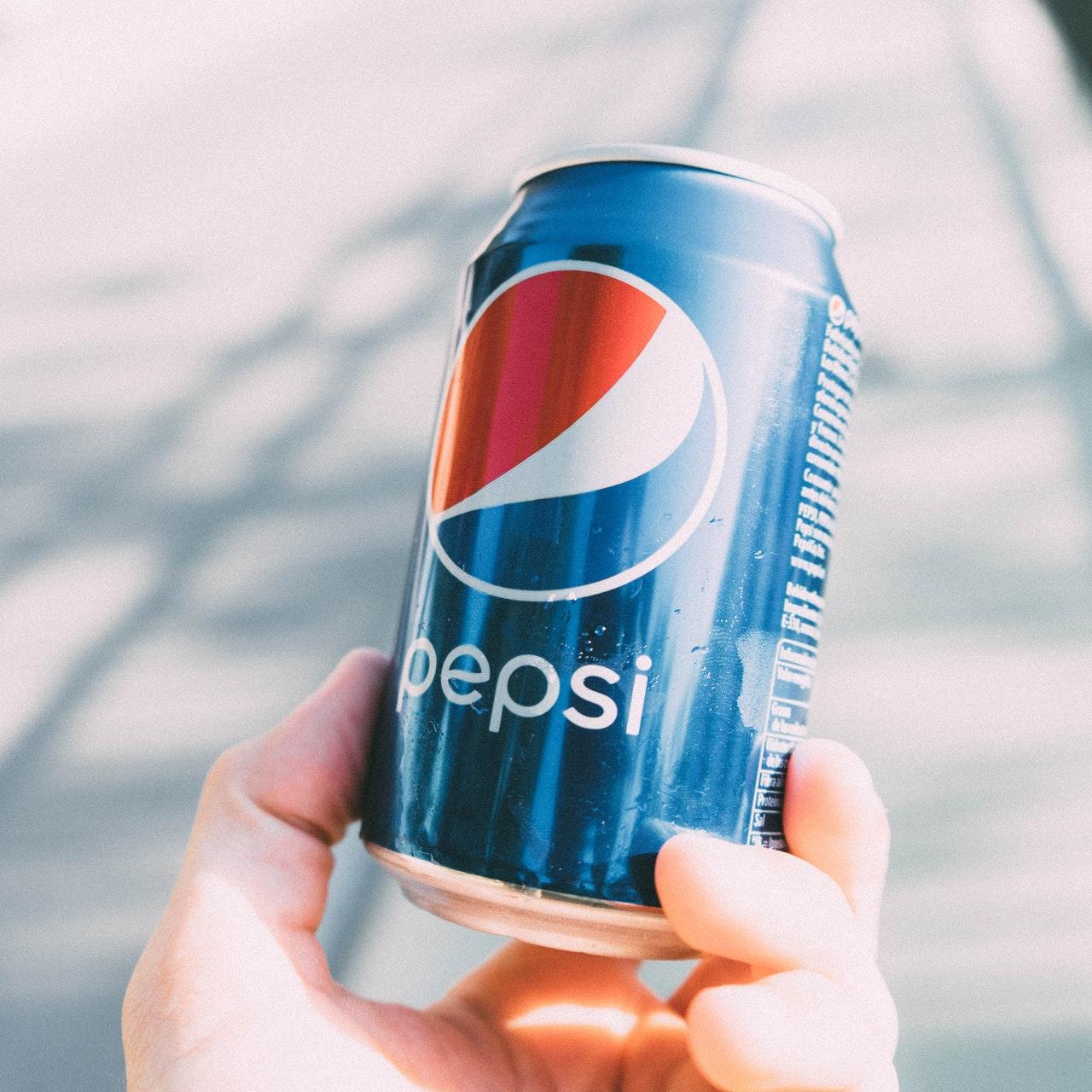
2020 may have been the year of net zero (among other things), but 2021 is shaping up to be a solid year for such corporate commitments, too. For companies following the Science-Based Target initiative’s (SBTi) guidelines, the tackling of such goals can check many boxes for companies seeking to prove to their stakeholders that they are serious about their sustainability strategies, especially with the Paris Agreement inhaling new life now that a presidential administration more serious about climate action steps in this Wednesday.
Beverage companies, whether they are purveyors of booze or fizzy drinks, face several huge challenges. The world’s largest companies in this sector have a huge global presence. They are also procuring and shipping a lot of materials that have either a huge environmental impact (plastic) or are heavy to haul around (glass). Plus, the products they ship are mostly water by weight. Then, of course, the transportation emissions can’t be overlooked. Neither can the energy consumed along the value chain, from moving that water in the first place to the energy required to keep the lights on at bottling plants, distilleries and retail locations.
To that end, PepsiCo is the latest beverage (and food) giant to face those hurdles as it boards the net-zero train.
Many companies that say they are working on a long-term net-zero strategy do so with vague promises of emission reductions and “partnering” with their suppliers to work on their environmental footprint. But PepsiCo appears to have a vision that accounts for the roadblocks ahead: This is a company, after all, that is in just about every nation and territory on earth and employs more than a quarter of a million people worldwide.
So, PepsiCo says it’ll take on a net-zero agenda by approaching it from several angles: revamping its agriculture supply chain, reducing its consumption of virgin plastic, changing how it approaches product design and shifting more of its global operations from using conventional energy to renewables. The overarching goal is to reduce its absolute greenhouse gas emissions by 40 percent by 2030.
PepsiCo’s announcement follows that of Coca-Coca European Partners (CCEP), the $14 billion company that bottles and sells Coke-branded products across Western Europe. CCEP has a similar goal to slash emissions by 2030 and be net zero by 2040 — and it says it will spend about $300 million in undertaking this effort over the next few years.
Another beverage company with a large presence in Europe, Suntory, has also said it will start to lay out plans enabling it to become net zero before mid-century. Nestlé, which has plenty of beverages within its brand portfolio, is another company with a net-zero plan that includes focusing on agriculture, forests and the deployment of renewables.
Image credit: Martin Péchy/Pexels